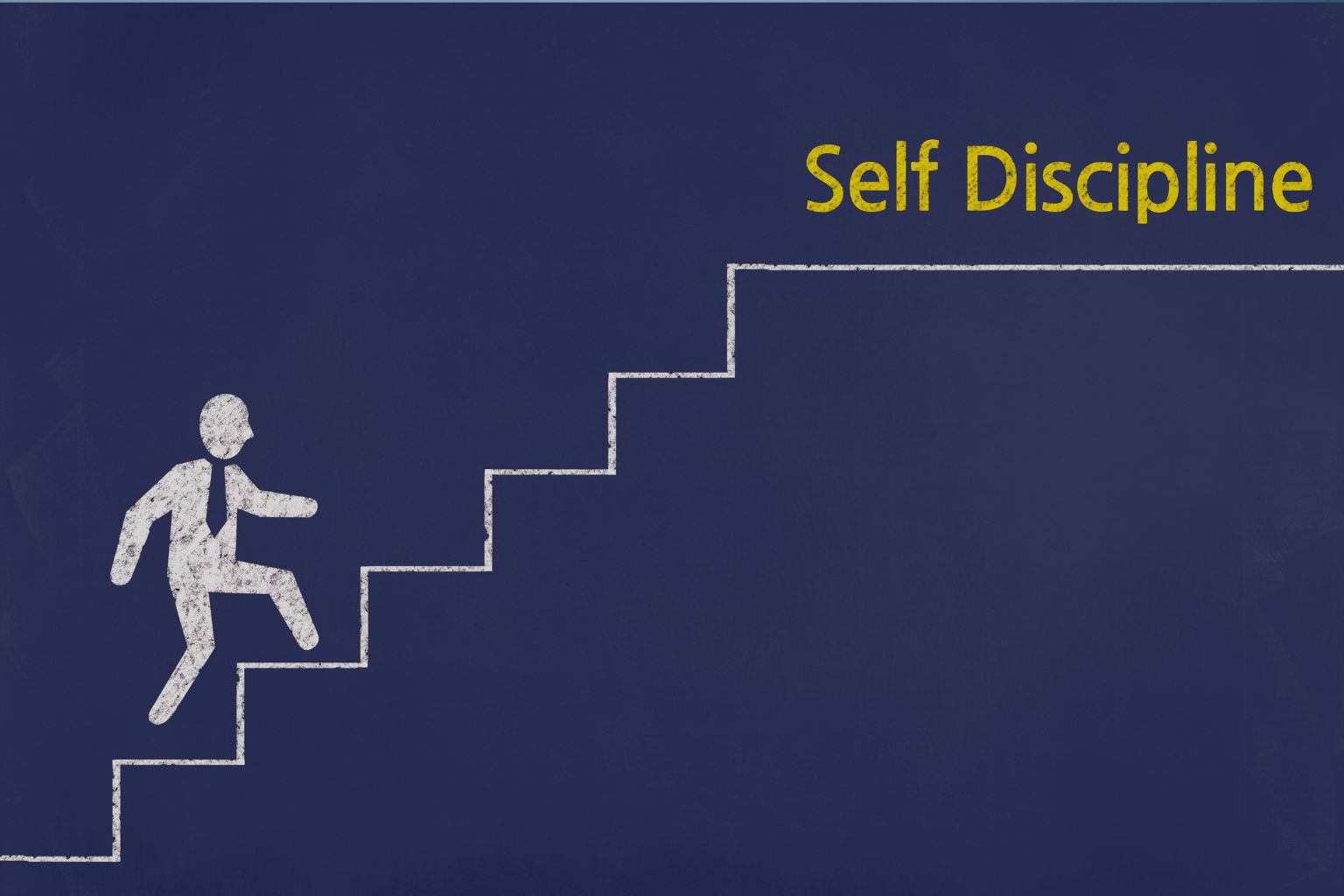Temptation is everywhere. From checking social media instead of working, to indulging in unhealthy foods, to putting off important tasks until tomorrow—these small decisions slowly erode our potential. But what separates successful individuals from the rest isn’t superhuman willpower; it’s something far more accessible: self-control for success.
In today’s fast-paced, distraction-heavy world, self-control for success is a skill anyone can cultivate. It is the difference between achieving your goals or falling short repeatedly. Alongside it stands a critical partner: mental discipline for success, a broader mindset that sustains you even in the most challenging circumstances.
This guide will help you understand what self-control and mental discipline really mean, identify your biggest challenges, and follow a proven step-by-step plan to win each day—one decision at a time.
What is Self-Control for Success?
Self-control for success is the ability to resist short-term urges and immediate gratification in favor of long-term goals and outcomes. It is the conscious choice to delay pleasure, stay focused, and act in alignment with your values and priorities—even when it’s difficult.
This isn’t about denying yourself joy or living like a monk. It’s about choosing what matters most over what feels good right now.
People who master self-control for success tend to:
- Follow through on goals even when motivation fades.
- Resist distractions and focus on key priorities.
- Maintain healthy habits consistently.
- Handle stress and emotional triggers with grace.
- Avoid reactive decisions that lead to regret.
But self-control is just one part of the equation. To sustain that control over time, especially when facing repeated challenges, you need mental discipline for success.
Why Is Self-Control So Hard?
You know you shouldn’t check your phone every five minutes. You know you should work out instead of binge-watching a show. And yet—you don’t. Why?
Because modern life is designed to hijack your self-control.
The Main Pain Points:
- Decision Fatigue
The more decisions you make in a day, the weaker your ability to choose wisely. Constant choices—what to wear, eat, say, do—drain your energy. - Instant Gratification Culture
Apps, food delivery, streaming—all designed to give you rewards now. This rewires your brain to seek quick dopamine hits, making long-term goals seem boring and irrelevant. - Lack of Clear Goals
Without a clear vision or compelling reason, resisting temptation becomes a constant internal battle. - Emotional Triggers
Stress, boredom, anxiety—these emotions often lead to poor decisions when you’re not equipped to pause and process them. - No Systems or Boundaries
If your environment is filled with distractions and temptations, even the most motivated person will eventually give in.
The good news? Every one of these challenges can be overcome. You can train yourself, step by step, to build self-control for success and strengthen your mental discipline for success.
Step-by-Step: Building Self-Control for Success
Here’s a proven 7-step plan to strengthen your self-control muscle every day.
Step 1: Define a Clear Goal (and Why It Matters)
Without a goal, there’s no reason to resist temptation. Begin by identifying a specific goal that matters to you.
- Bad Example: “I want to be healthier.”
- Good Example: “I want to lose 15 pounds in 12 weeks so I have more energy and feel confident.”
Attach emotion and meaning to the goal. This creates emotional fuel for when the going gets tough.
Step 2: Identify Your Triggers
Self-control begins with awareness. Pay attention to:
- Times of day you’re most distracted.
- Emotions that lead to poor decisions (e.g., stress = junk food).
- Environments that make temptation easier.
Use a journal to track moments when you fail at self-control. What were the circumstances? What were you feeling?
This helps you anticipate and prepare for the next time.
Step 3: Modify Your Environment
One of the most powerful (and overlooked) strategies is changing your surroundings.
- Keep junk food out of the house.
- Turn off app notifications.
- Set up a clean, dedicated workspace.
- Use website blockers like Cold Turkey or Freedom.
Don’t try to win a daily battle against temptation—eliminate the battlefield.
This is where mental discipline for success begins to shine—by creating a structure that supports your willpower instead of testing it.
Step 4: Use the 5-Second Rule
When temptation strikes, count down from 5 to 1 and take action immediately toward your goal.
Example:
- You want to skip the gym. Count 5-4-3-2-1, and just put on your shoes.
- You feel like checking your phone. Count 5-4-3-2-1, and close the tab.
Interrupt the pattern and initiate momentum. Action leads to more action.
Step 5: Develop Micro-Habits
Start small and stay consistent.
- Meditate for 2 minutes each morning.
- Write down your top 3 priorities for the day.
- Read one page of a book before bed.
Consistency rewires your brain. Small wins stack up, building the identity of someone who has self-control for success.
Step 6: Reflect and Adjust Weekly
Every week, take 10 minutes to answer:
- What went well?
- Where did I give in to temptation?
- What will I do differently next time?
This is mental discipline for success in action. Reflection turns failure into feedback.
Without reflection, we repeat mistakes. With reflection, we evolve.
Step 7: Celebrate Small Wins
Self-control shouldn’t feel like punishment. Reward yourself for progress:
- Completed a full week without sugar? Treat yourself to a movie night.
- Hit your work goals for 5 days? Take Sunday off, guilt-free.
Celebrate progress—not perfection. This builds motivation and sustains long-term behavior change.
Daily Self-Control Blueprint (Sample)
Here’s How a High-Self-Control Day Might Look:
- 6:30 AM: Wake up, no phone for first 30 minutes.
- 7:00 AM: 2-minute meditation + short workout.
- 8:00 AM: Review top 3 priorities for the day.
- 12:00 PM: Healthy lunch prepared in advance.
- 3:00 PM: Energy dip? Take a 10-min walk instead of grabbing sugar.
- 6:00 PM: Phone on Do Not Disturb while with family.
- 9:00 PM: No screens 30 min before bed. Read or reflect in journal.
Repeat. Refine. Stay consistent.
How Mental Discipline for Success Reinforces Self-Control
Mental discipline isn’t about constantly forcing yourself. It’s about becoming someone who naturally makes better choices. Here’s how:
- Vision Alignment: You know where you’re going and why.
- Identity Shift: You begin to see yourself as someone in control, disciplined, and focused.
- Routine Building: Habits replace willpower.
- Emotional Mastery: You respond, not react, to stress or setbacks.
- Delayed Gratification: You find satisfaction in progress—not quick dopamine hits.
This deep inner framework makes self-control for success sustainable, not exhausting.
Final Thoughts: Win the Moment, Win the Day
Success isn’t about giant breakthroughs. It’s about winning the small moments—over and over again.
When you resist a donut, silence your phone, or get started on a task you’ve been dreading—you are building self-control for success. You’re laying bricks for a life of purpose, power, and peace.
Combined with mental discipline for success, this creates a life where distractions lose their power and your goals become inevitable.
Start small. Stay consistent. Refuse to negotiate with your excuses. Your future self will thank you.
FAQs on Self-Control and Mental Discipline
Self-control is a skill, not a fixed trait. Like a muscle, it can be trained, strengthened, and improved with consistent practice and structure.
Self-control is about moment-to-moment decisions (e.g., saying no to a craving).
Mental discipline is the broader structure, mindset, and habits that make self-control easier.
Both are essential for long-term success.
Research suggests it takes about 66 days to form a strong habit. But improvements can be seen within a week or two if you stay consistent with small daily actions.
Failure is feedback. Reflect on why it happened, adjust your strategy, and try again. Mental discipline for success is built through resilience—not perfection.
Yes. Self-control is transferable. Success in one domain (e.g., fitness) often builds confidence and momentum in others (e.g., career, finances).

















Share it!